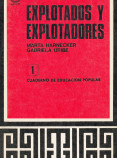How to Build a Literate Society

The government strongly believed that books and reading should be available to everyone. The circulation dynamics of written culture shifted with the creation of the state publishing house, Editora Nacional Quimantú. Created by nationalising the private company Zig-Zag, this publishing house became a platform for the dissemination, distribution and mass presentation of different topics, while significantly increasing people’s access to national and world literature.
Quimantú achieved an unprecedented milestone: its production reached the classes who had historically been marginalised from national conversations, serving as a means for inclusion and political and educational emancipation. The editorial design operated as a social tool to reduce illiteracy and motivate critical thinking: passive readers turned into citizen-actors.
From the late 1960s, the student university reform movement fostered greater modernisation, democratisation and social commitment. Chilean universities set out to expand education for the working class and connect it to the country’s realities to make it more inclusive. The Technical State University, for example, was at the vanguard of training workers in the state industries. Its magazine also played a prominent role in disseminating science and technology and Chile’s socialist project.

